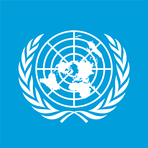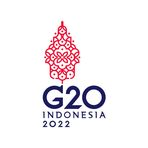A Call for Justice: The G20 Summit's Vision for Global Development
November 21, 2024, 9:43 am

Location: United States, New York
Employees: 10001+
Founded date: 2002
Total raised: $500M

Location: Indonesia, Jakarta Special Capital Region
Employees: 51-200
Founded date: 2019
The recent G20 Summit in Rio de Janeiro was more than just a meeting of leaders. It was a stage for a vision—a vision of a just world. The speeches delivered by Chinese President Xi Jinping echoed with themes of fairness, equity, and collective responsibility. These words resonated deeply, especially in a world grappling with stark inequalities.
The summit, held on November 18 and 19, 2024, was a pivotal moment. It gathered leaders from the Global North and South, uniting them under a common goal: to combat hunger and poverty. Xi's emphasis on a "just world of common development" struck a chord. He argued that prosperity cannot thrive where the rich grow richer while the poor suffer. This is a truth as old as time, yet it remains relevant today.
Hunger is not merely a lack of food; it is a symptom of deeper injustices. The world produces enough food to feed everyone. Yet, millions go hungry. The disparity in food distribution is a glaring injustice. Countries in the Global South bear the brunt of this inequity. The summit's establishment of a "Global Alliance against Hunger and Poverty" is a step toward addressing these root causes. It’s a call to action, urging nations to collaborate for a more inclusive and resilient global development.
China's journey in poverty alleviation is a beacon of hope. The nation has lifted 800 million people out of poverty, achieving UN goals ahead of schedule. This success story serves as an inspiration for other developing countries. Xi's narrative of perseverance and determination paints a vivid picture. It’s a reminder that with collective effort, the seemingly impossible can become reality.
The G20 has evolved into a crucial platform for international cooperation. It brings together major economies, both developed and emerging. This blend of perspectives fosters synergy. The collective rise of the Global South is a testament to this collaboration. As countries unite, they can amplify their voices in global governance. This is where multilateralism shines.
Xi's speeches outlined eight actions for global development. These actions aim to foster international consensus across various fields—economic, financial, trade, digital, and environmental. The vision is clear: a multipolar world where economic globalization benefits all. It’s a world where every nation has a seat at the table.
The G20's role is not just to respond to crises but to lead. It must evolve from being a "firefighter" during economic downturns to an "engine" driving global prosperity. This shift requires commitment. It demands that nations prioritize collaboration over competition. The challenges we face—climate change, economic disparity, and social injustice—cannot be solved in isolation.
Xi's call for a "just world" is not just rhetoric; it’s a challenge. It urges nations to reflect on their responsibilities. The world is interconnected. What happens in one corner affects us all. The rise of protectionism and unilateralism threatens this interconnectedness. In this context, the G20 must champion inclusivity and fairness.
The summit also highlighted the importance of empowering developing nations. China’s support for the African Union’s inclusion in the G20 is a significant step. It amplifies the voices of those often marginalized in global discussions. This empowerment is crucial for fostering a sense of ownership among developing countries. When nations feel included, they are more likely to contribute to global solutions.
As we look ahead, the path to a just world requires action. It’s not enough to speak of fairness; we must embody it. The G20 must serve as a catalyst for change. It should encourage nations to share resources, knowledge, and technology. This collaborative spirit can bridge the gaps that divide us.
The vision of a just world is beautiful, but it is not without challenges. The road ahead is fraught with obstacles. Yet, history shows us that collective action can lead to monumental change. The G20 has the potential to be a powerful force for good. It can drive the agenda for a more equitable world.
In conclusion, the G20 Summit in Rio was a clarion call for justice. It urged nations to unite in the fight against hunger and poverty. Xi Jinping’s vision of a just world resonates deeply in today’s context. It is a reminder that our fates are intertwined. The pursuit of fairness and equity is not just a noble cause; it is a necessity. As we move forward, let us carry this vision with us. Together, we can build a world where prosperity is shared, and justice prevails. The journey may be long, but with determination and collaboration, a just world is within reach.
The summit, held on November 18 and 19, 2024, was a pivotal moment. It gathered leaders from the Global North and South, uniting them under a common goal: to combat hunger and poverty. Xi's emphasis on a "just world of common development" struck a chord. He argued that prosperity cannot thrive where the rich grow richer while the poor suffer. This is a truth as old as time, yet it remains relevant today.
Hunger is not merely a lack of food; it is a symptom of deeper injustices. The world produces enough food to feed everyone. Yet, millions go hungry. The disparity in food distribution is a glaring injustice. Countries in the Global South bear the brunt of this inequity. The summit's establishment of a "Global Alliance against Hunger and Poverty" is a step toward addressing these root causes. It’s a call to action, urging nations to collaborate for a more inclusive and resilient global development.
China's journey in poverty alleviation is a beacon of hope. The nation has lifted 800 million people out of poverty, achieving UN goals ahead of schedule. This success story serves as an inspiration for other developing countries. Xi's narrative of perseverance and determination paints a vivid picture. It’s a reminder that with collective effort, the seemingly impossible can become reality.
The G20 has evolved into a crucial platform for international cooperation. It brings together major economies, both developed and emerging. This blend of perspectives fosters synergy. The collective rise of the Global South is a testament to this collaboration. As countries unite, they can amplify their voices in global governance. This is where multilateralism shines.
Xi's speeches outlined eight actions for global development. These actions aim to foster international consensus across various fields—economic, financial, trade, digital, and environmental. The vision is clear: a multipolar world where economic globalization benefits all. It’s a world where every nation has a seat at the table.
The G20's role is not just to respond to crises but to lead. It must evolve from being a "firefighter" during economic downturns to an "engine" driving global prosperity. This shift requires commitment. It demands that nations prioritize collaboration over competition. The challenges we face—climate change, economic disparity, and social injustice—cannot be solved in isolation.
Xi's call for a "just world" is not just rhetoric; it’s a challenge. It urges nations to reflect on their responsibilities. The world is interconnected. What happens in one corner affects us all. The rise of protectionism and unilateralism threatens this interconnectedness. In this context, the G20 must champion inclusivity and fairness.
The summit also highlighted the importance of empowering developing nations. China’s support for the African Union’s inclusion in the G20 is a significant step. It amplifies the voices of those often marginalized in global discussions. This empowerment is crucial for fostering a sense of ownership among developing countries. When nations feel included, they are more likely to contribute to global solutions.
As we look ahead, the path to a just world requires action. It’s not enough to speak of fairness; we must embody it. The G20 must serve as a catalyst for change. It should encourage nations to share resources, knowledge, and technology. This collaborative spirit can bridge the gaps that divide us.
The vision of a just world is beautiful, but it is not without challenges. The road ahead is fraught with obstacles. Yet, history shows us that collective action can lead to monumental change. The G20 has the potential to be a powerful force for good. It can drive the agenda for a more equitable world.
In conclusion, the G20 Summit in Rio was a clarion call for justice. It urged nations to unite in the fight against hunger and poverty. Xi Jinping’s vision of a just world resonates deeply in today’s context. It is a reminder that our fates are intertwined. The pursuit of fairness and equity is not just a noble cause; it is a necessity. As we move forward, let us carry this vision with us. Together, we can build a world where prosperity is shared, and justice prevails. The journey may be long, but with determination and collaboration, a just world is within reach.